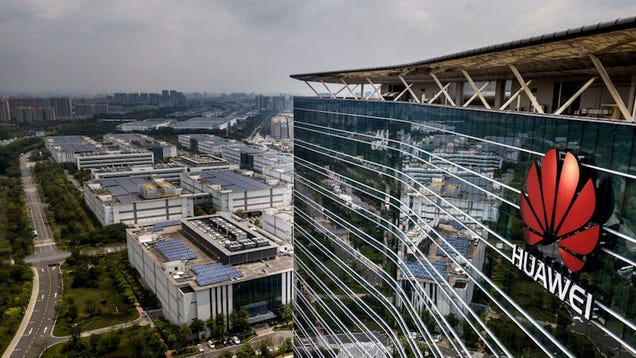Yosadara Miron had Monday, May 18, circled on her calendar for two weeks.
It was the day that she and more than 2 million other undocumented immigrants in California could begin to apply for a $125 million program, made up of state and private funds, that would provide one-time payments of $500 per individual adults or up to $1,000 per household.
“I was ready at 9 a.m. and had my personal information and tax identification number ready to give them,” said Miron, who lives in Pomona with her husband and two children. “We wanted to be one of the first people to call and apply.”
Her husband lost his job as a manager at a seafood restaurant in March, she said, and hasn’t had any income in two months.
But on Monday, she was greeted with jammed phone lines and crashed websites due to high demand and interest in the program. Making matters worse, the state issued last-minute direction that callers needed to reach a live person in order to apply for aid.
“I called and called and didn’t get through till 5 p.m. on Monday,” Miron said. “I had to keep trying because we have no other options for help. Now I’m waiting to see if that help is coming.”
Miron and her husband are among the thousands of undocumented workers in the state who don’t qualify for federal assistance or stimulus checks due to their legal status. That’s why when Gov. Gavin Newsom announced the undocumented coronavirus relief fund in mid-April, many immigrant rights and nonprofit groups applauded the state’s efforts. California is currently the only state using taxpayer money to assist undocumented workers.
The program will give $75 million in cash assistance to an estimated 150,000 applicants. Philanthropic organizations and private donors have pledged an additional $50 million to help another 100,000 individuals and families. The funds are available on a first-come, first-served basis until they are spent or June 30, whichever comes first.
To ease privacy concerns about personal information ending up in the hands of federal immigration authorities, the state’s Department of Social Services sent the money to 12 nonprofit groups that will disburse the aid. The organizations are tasked with helping applicants determine if they’re eligible for the program, as well as delivering payment cards to those who are granted aid. Applicants’ information is not to be shared with the state during the process.
To qualify for the aid, applicants must show that they are ineligible for federal assistance programs stemming from the COVID-19 pandemic, like the Coronavirus Aid, Relief, and Economic Security, or CARES Act, and other federal unemployment benefits, and that they have endured a hardship from the pandemic. Only adults may apply.
Hotline numbers for the agencies helping in each county can be found on the Department of Social Service’s website.
Asking For Help
The TODEC Legal Center, a nonprofit in Riverside County, is one of those 12 organizations tasked with helping and disbursing aid to undocumented workers in the greater Inland Empire. According to Luz Gallegos, community programs director, the center received nearly 1 million calls in the first 48 hours of the application period.
“We knew there was going to be a high demand but nothing like this,” Gallegos said. “People think that $500 doesn’t sound like much but it’s a big deal for a lot of families that haven’t had any type of income since the pandemic began.”
Another nonprofit working directly with undocumented workers, the Central American Resource Center in Los Angeles, said in a Facebook post that it received more than 50,000 phone calls on Monday.
Gallegos said the large volume of calls proves how vital this money is to so many people. She pointed out that though many undocumented workers pay income taxes, they don’t qualify for federal relief or unemployment insurance, making things even harder for families that were already living paycheck to paycheck.
According to the state, undocumented immigrants contributed $2.5 billion in state and local taxes in 2019. The group makes up an estimated 10% of the state’s workforce.
“The pandemic has exposed the trauma that the undocumented community faces every day, whether it be lack of health care access, financial stress or job security,” Gallegos said. “This should be a wake-up call for the state that more needs to be done.”
On the front lines
Fernando Romero has worked and supported hundreds of day-laborers in Los Angeles and the Inland Empire through the Pomona Economic Opportunity Center. For the past six years, he’s helped undocumented migrants find work and has connected them with other immigration services.
But when the coronavirus pandemic took off in March, the nonprofit had to switch gears and find ways to financially assist many of the workers that were now out of work. Romero said the nonprofit has provided about $60,000 in aid since mid-March.
“For the last two months we have supported around 60 to 100 workers by giving $200 to 250 a week through pre-paid gift cards,” said Romero, noting the money came from other organizations that helped with grants. “We’ve been a lifeline for so many that can’t find jobs or have any money coming in.”
Another group, Gente Organizada, a community-led social action nonprofit located in Pomona, has also lent a hand to the undocumented community for years now. Jesus Sanchez, the organization founder, primarily works with high school and college students, undocumented and low-income individuals — some of his clients fit all three categories. When the pandemic began, he said, he knew many of his clients would be affected immediately.
“We knew so many folks that would face eviction notices due to loss of income and work, so right away we knew which group would be hit hardest,” Sanchez said. “They already have other worries like debt, Immigration and Customs Enforcement and being deported, so this was a huge blow.”
When the undocumented workers program was announced, Miron was one of the first to reach out to Gente Organizada for help. She and her family had previously worked with Sanchez and they have participated in grassroots projects advocating for undocumented worker rights.
Miron said her application has been accepted, now she is waiting for the money. Every day that passes is another filled with worry and stress, she said. While the family’s landlord has been cooperating with her on late payments, she said she doesn’t know how long her family can withstand the mounting debt.
The relief money should be disbursed within two to four days after an application is approved, according to the TODEC Legal Center.
Miron’s son, Andrew, said that while things have been rough he’s found some peace in having his family home together for the first time in years. While his dad lost his job, the 16-year-old said he’s been able to spend more time with him these past few months. Most mornings start with lining up at food banks with his mom or taking grocery trips with his dad, something he’s found to appreciate during this tough time.
“My mom is stressed and so is my dad but I take this all as a blessing because this is first time we get to spend time together at home which never happens,” he said. “We’re not doing great but we have each other and that’s all I can ask for right now.”





 Photo by Tom Warren / The Verge
Photo by Tom Warren / The Verge